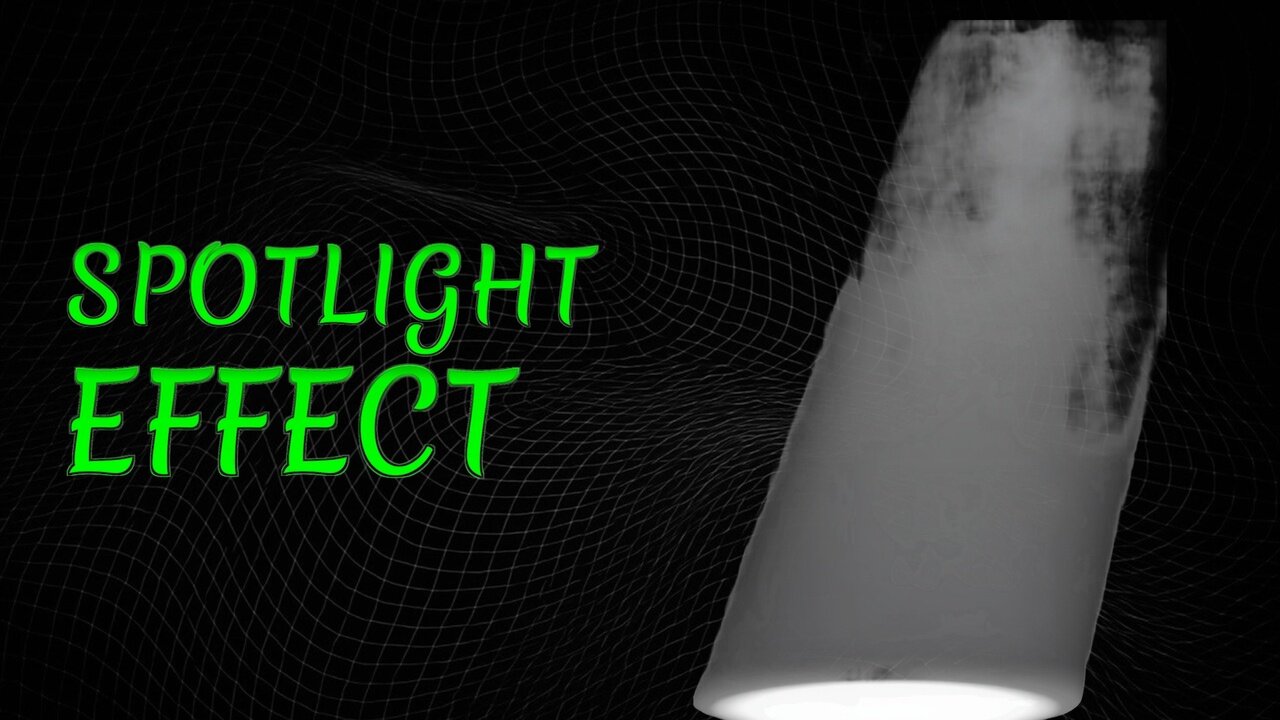Premium Only Content

The Spotlight Effect | Psychology Understood
The Spotlight Effect is a psychological phenomenon that sheds light on how individuals often overestimate the extent to which others notice their appearance or behavior. This cognitive bias arises from the tendency to assume that other people are as observant and critical of us as we are of ourselves. The term was popularized by psychologists Thomas Gilovich and Kenneth Savitsky, who conducted seminal research on this topic.
At its core, the Spotlight Effect reflects a disparity between our self-perception and how others perceive us. This discrepancy is particularly pronounced in social situations where individuals might feel self-conscious or anxious. For example, a person might believe that everyone in a room is noticing their new hairstyle or a small stain on their shirt, when in reality, most people are focused on their own thoughts and actions.
The origins of the Spotlight Effect can be traced back to several psychological principles. One key factor is the "anchor and adjust" heuristic, where individuals start with an initial estimate (the anchor) and make adjustments based on additional information. In the context of the Spotlight Effect, people anchor on their own self-awareness and then fail to adequately adjust for the fact that others are less likely to notice the same details.
Another contributing factor is the "egocentric bias," where people tend to see the world from their own perspective and assume that others share the same viewpoint. This bias can lead to an exaggerated sense of how much attention others are paying to us.
Understanding the Spotlight Effect can have significant implications for mental health and social interactions. Individuals who are aware of this phenomenon can reduce unnecessary self-consciousness and anxiety. By recognizing that others are generally less observant of our actions and appearance than we imagine, we can cultivate a more relaxed and confident demeanor in social settings.
Moreover, the Spotlight Effect highlights the importance of perspective-taking in social interactions. By shifting focus away from our own insecurities and towards understanding the perspectives of others, we can engage in more meaningful and empathetic conversations.
In summary, the Spotlight Effect provides valuable insights into human cognition and social behavior. By recognizing and addressing this bias, individuals can enhance their social interactions and overall well-being. Whether in personal or professional settings, an awareness of the Spotlight Effect can lead to a more balanced and realistic view of how others perceive us.
Tags:
Spotlight Effect, Social Psychology, Cognitive Bias, Self-Perception, Social Anxiety, Egocentric Bias, Heuristic Thinking, Mental Health, Social Interactions, Perspective Taking
-
 4:23:04
4:23:04
Right Side Broadcasting Network
7 hours agoLIVE REPLAY: President Trump Participates in a Press Conference With Prime Minister Netanyahu - 9/29/25
66.8K37 -
 1:09:19
1:09:19
The White House
5 hours agoPresident Trump Participates in a Bilateral Meeting with the Prime Minister of the State of Israel
11.6K30 -
 1:25:35
1:25:35
Russell Brand
4 hours agoMichigan Church Shooting Sparks Trump Warning Of ‘TARGETED ATTACK On Christians’ - SF641
170K44 -
 1:59:24
1:59:24
The Charlie Kirk Show
4 hours agoRemembering Charlie's Martyrdom and Continuing His Revival | Driscoll, McPherson | 9.29.2025
189K47 -
 1:34:24
1:34:24
Sean Unpaved
4 hours agoEuropeans Too Good, Lamar's Limp-Off, & the MLB's Playoff Party: Weekend Sports Review
39.7K4 -
 1:15:02
1:15:02
Mark Kaye
5 hours ago🔴 TRUMP Furious Over Bad Bunny Super Bowl Halftime Show
31.8K3 -
 46:58
46:58
MattMorseTV
5 hours ago $10.07 earned🔴COURT DATE for Kirk's ASSASSIN.🔴
66.9K30 -
 2:11:40
2:11:40
Nerdrotic
5 hours ago $4.42 earnedOne Woke After Another | JK Rowling NUKES Emma Watson - Nerdrotic Nooner 520
58.9K8 -
 2:06:35
2:06:35
Steven Crowder
7 hours agoTrump Hammers Portland: ANTIFA is a Terrorist Organization that Must be Crushed
485K382 -
 2:03:56
2:03:56
Side Scrollers Podcast
5 hours agoSmash Pro DEMANDS “Woke Echo Chamber” + EA SOLD To Saudis + More | Side Scrollers
28.3K